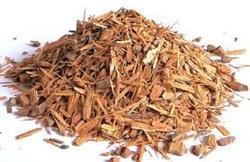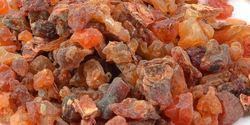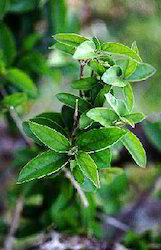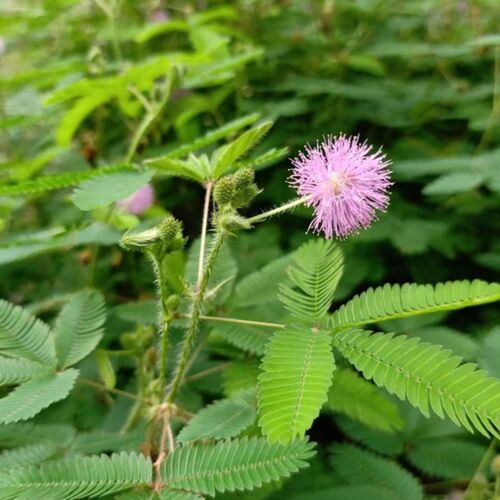- Home Page
- Company Profile
-
Our Products
- Pure Herbal Extracts
- Apamarga Extract
- Gojiberry Extract
- Dandelion Extracts
- Black Tea Extract
- Shilajit Extract
- Manjishtha Extracts
- Cissus Quadrangularis Extract
- Chitrakmool Extract
- Amaltas Extract
- Artemisia Extract
- Bromelain - 2400 GDU
- Olive Leaf Extract
- Muira Puama Extracts
- Bhringraj Extract
- Birch Leaf Extract
- L Glutathione Reduced
- Piperine Extract
- Devil's Claw Extract
- Celery Seed Extract
- Asafoetida Extract
- Apple Powder
- Ajwain Seed Extract
- Natural Herbal Extracts
- Papaya Leaf Extract
- Pumpkin Seed Extract
- Natural Herbal Organic Extracts
- Maitake Mushroom Extract
- Ganoderma Extract
- Schisandra Berry Extract
- Moringa Leaf Extract
- Fenugreek Extract
- Acacia Catechu Khadir Chhal Extract
- Arjuna Extract
- Tulsi Ark
- Neem Extract
- Kacip Fatimah Extract
- Boswellia Serrata Extract
- Astragalus Extract
- Passion Flower Extract
- Kelp Extract
- Ginseng Extract
- Nigella Sativa Extract
- Curcumin Extract
- Pansy Extracts
- Sea Buckthorn Extracts Powder
- Rosemary Extract
- Mucuna Pruriens Extract
- Ashoka Extract
- Gokhru Extract
- Rose Hip Extract
- Kudzu Extract
- Natural Phytosterol 95%
- Organic Herbal Extracts
- Papain Enzyme
- Propolis Extract
- Aguaje Fruit Extract
- Elder Berry Extract
- Hoodia Extract
- Wheat Grass Extract
- Black Current Extract
- Valerian Root Extracts Powder
- Sesbania Grandiflora Extract
- Broccoli Extract
- Mangolina Bark Extracts
- Pomegranate Extract
- Acai Berry Extract
- Apple Extract
- Blueberry Extract
- Black Cohosh Extract
- Chamomile Extract
- Guava Leaf Extracts Powder
- Burdock Root Extract
- Mulberry Leaf Extract
- Raspberry Extract
- Mitake Mushroom Extract
- Grape Seed Extract
- Kiwi Extract
- Basella Alba Extracts
- Hawthorn Extract
- Thyme Extract
- Hibiscus Powder
- Morinda Citrifolia Extract
- Wheatgrass Extract
- Bitter Melon Extract
- Hops Flower Extract
- Mangosteen Extract
- Parsley Extract Powder
- Jamun Seed Extracts
- Guggal Extract
- Acerola Cherry Extract
- Garlic Extract
- Hedera Helix Extract
- Senna Extract
- Shiitake Mushroom Extracts
- Ginger Extract
- Vitex Agnus Extract
- Nettle Leaf Extract
- Pygeum Bark Extract
- Guduchi (Giloy) Extract
- Lotus Extract
- Amla Extract
- Soya Isoflavone Extract
- Lucuma Extract
- Bamboo Extract
- Herbal Powder
- Shatavari Extract
- Gokharu Extract
- Berberine HCL
- Stem Cell Extract
- Herbal Raw Material
- Graviola Extract
- Apricot Extract
- L Arjinin Powder
- Brahmi Extract
- Cranberry Extract
- Astaxanthin Powder
- Herbal Extract
- Stevia Leaf Extract
- Apmarga Extracts
- Dandelion Extract
- Anthocyanin Powder
- Nutraceuticals Raw Materials
- Beta Sitosterol Powder
- Alfa Alfa Extract
- Cinnamon Extracts
- Spinach Extract
- Irvingia Gabonensis Extract
- Siberian Ginseng Extract
- American Ginseng
- Pure Thyme Extract
- Enriched Yeast
- Bitter Buckwheat Extract
- Dong Quai
- Red Yeast Rice Extract
- Avena Sativa Extract
- Colchicine USP
- Aloe Vera Extracts
- Coleus Root Extracts
- Sage Leaf Extract
- White Willow Bark
- DHA Powder
- Coleus Extract
- Catuba Bark Extract
- Guggul Extracts
- Spirulina Powder
- Chlorella Extract
- Omega 3 Powder
- White Willow Bark Extract
- American Ginseng Extract
- Chlorella Extracts
- Centrallia Asciatica
- Gymnema Sylvestris
- Cissus Quadrangularis
- Saga Leaf
- Ginkgo Biloba
- Siberian Ginseng
- DHA Veg Powder
- Ginkgo Biloba Extract
- Gymnema Sylvestre Extracts
- Quercetin Powder
- Juniperus Communis Extract
- Annona Squamosa Extracts (Shareefa)
- Green Apple Extract
- Tephrosia Purpurea Extract
- Soy Isoflavone
- Cocoa Husk Extract
- Terminalia Belerica Extract
- Chirata Extract (Swertia Chirayaita)
- Arrow root Extract (Maranta arundinacea)
- Punica Granatum Extract (Dadima/ Dadaka/ Anar)
- Pterocarpus marsupium Extract (Asana / Vijaysar / Beejaka)
- Butea monosperma Taub / B. frondosa(Palash / Dhark)
- (Vasaka/Adhatoda Zeylanica) Vasaka Extract
- Amaranthus Spinosus Extract (Tanduliya / Chaulai / Kateli)
- Cajanus Cajan Extract (Adaki / Arahar / Tuvar ki daal)
- L Theanine Powder
- Acacia Catechu Extract
- Cinnamon Powder
- Basella alba Leaf Extract
- Cucumis Melo Extract
- Organic-Natural (3.6%) Iron From Curry Leaf
- Mixed Tocopherol 30% Powder from Soya
- Citrus Bioflavonidoid Powder
- Salacia Reticulata Root Extract
- Mangosteen Extract Powder
- Natural (50%) Vitamin C From Amla Extract
- Organic-Natural (0.5%) Biotin From Sesbania Grandiflora
- Organic-Natural (5%) Folic acid From Lemon Peel Extract
- Organic-Natural Thiamine From Mung bean (Vigna radiata)
- Organic-Natural (2%) Beta Carotene From Carrot
- Organic-Natural (4%) Beta Carotene From Annatto Extract
- Organic-Natural (3.6%) Niacin From Holy Basil (Tulsi) Extract
- Citrus latifolia Extract
- Organic-Natural (4%) Magnesium From Lantana camara (Sage Leaf)
- Perna canaliculus (Green lipped mussel / Mussel Oil)
- Omega 6 Fatty Acid Powder
- Organic Millet Extract
- Hesperidin Powder
- silymarin extract
- Phycocyanin From Spirulina Plantesis
- Methyl Sulfonyl Methane (MSM) Powder
- Sphaeranthus Indicus Extract
- Nelumbo Nucifera Lotus Leaf Extract
- Mimosa Pudica Extract
- Medicinal Herbal Extract
- Echinacea Extract
- Green Coffee Extracts
- Noni Extract
- Wild Yam Extract
- Mulethi Extract
- Tongkat Ali Extract
- Garcinia Extract
- Harad Extract
- Banana Leaf Extract
- Barley Grass Extract
- Artimisia Extract
- Nettle Extract
- Konjac Extract Powder
- Resveratrol Powder
- White Kidney Bean Extracts
- Horse Chest Nut Extract
- Green Tea Extract
- Resveratrol Powder
- Green Coffee Extract
- Wort Plant Extract
- Yarba Mate Extract
- Yohambe Extract
- Essential Oils
- Lemon Oil
- Balsam peru
- Tea TREE oIL
- Palmarosa Oil
- LemonGrass Oil
- Rose Essential Oil
- Ylang Ylang Oil
- Pure Frankincense Oil
- Citronella Essential Oil
- Lavender Essential Oil
- Jasmine Essential Oil
- Peppermint Oil
- Wheat Germ Oil
- Walnut Oils
- Macadamia Nut Oil
- Olive Oil
- Grape Seed Oil
- Pure Hazelnut Oil
- Carrot oil
- Argan Oil
- Apricot Oil
- Natural Almond Oil
- Jojoba Oil
- Basil Oil
- Lemongrass Essential Oil
- Essential Oils
- Bitter Orange
- Sandalwood Oil
- Rosemary Oil
- Aloe Vera Essential Oil
- Nagarmotha Oil
- Frangipani Oil
- Fenugreek CO2 Oil
- Geranium Oil
- Treemoss Absolute
- Balsam Copaiba
- Bay Oil
- Spearmint Oil
- Lavandin Oil
- Mace Absolute
- Mandarine Oil Yellow
- Buchu Leaf Oil
- Turmeric Oleoresin
- Ginger Oleoresin
- Frankincense OIl
- Balsam peru
- Ambrette Seed Absolute Natural
- Medium Chain Triglycerides Oil CCTG MCT Oil
- Ratio Extract
- Spray Dried Powders
- Food Ingredients
- Natural Food Colours
- Sea Buckthorn Products
- Active Pharmaceutical Ingredient
- Pure Herbal Extracts
- Contact Us
Saga Leaf
MOQ : 1 Kilograms
Saga Leaf Specification
- Extract Type
- Solvent Extraction
- Variety
- Other Herbal Extract
- Part
- Flower
- Form
- Powder
- Purity(%)
- 98
- Shelf Life
- 24 Months
Saga Leaf Trade Information
- Minimum Order Quantity
- 1 Kilograms
- Supply Ability
- 100 Kilograms Per Month
- Delivery Time
- 1 Months
About Saga Leaf
Sage has one of the longest histories of use of any culinary or medicinal herb. Ancient Egyptians used it as a fertility drug (Bown, 1995). In the first century C.E. Greek physician Dioscorides reported that the aqueous decoction of sage stopped bleeding of wounds and cleaned ulcers and sores. He also recommended sage juice in warm water for hoarseness and cough. It was used by herbalists externally to treat sprains, swelling, ulcers, and bleeding. Internally, a tea made from sage leaves has had a long history of use to treat sore throats and coughs; often by gargling. It was also used by herbalists for rheumatism, excessive menstrual bleeding, and to dry up a mother's milk when nursing was stopped. It was particularly noted for strengthening the nervous system, improving memory, and sharpening the senses. Sage was officially listed in the United States Pharmacopoeia from 1840 to 1900.
Sage Tea or infusion of Sage is a valuable agent in the delirium of fevers and in the nervous excitement frequently accompanying brain and nervous diseases. It has a considerable reputation as a remedy, given in small and often-repeated doses. It is highly serviceable as a stimulant tonic in debility of the stomach and nervous system and weakness of digestion generally. It was for this reason that the Chinese valued it, giving it the preference to their own tea. It is considered a useful medicine in typhoid fever and beneficial in biliousness and liver complaints, kidney troubles, haemorrhage from the lungs or stomach, for colds in the head as well as sore throat, quinsy, measles, for pains in the joints, lethargy and palsy. It has been used to check excessive perspiration in phthisis cases, and is useful as an emmenagogue. A cup of the strong infusion will be found good to relieve nervous headache.
The German Commission E approved internal use for mild gastrointestinal upset and excessive sweating as well as for external use in conditions of inflamed mucous membranes of the mouth and throat. An unpublished, preliminary German study with people suffering from excessive perspiration found that either a dry leaf extract or an infusion of the leaf reduced sweating by as much as 50%.
In Germany, sage tea is also applied topically as a rinse or gargled for inflammations. Sage extract, tincture, and essential oil are all used in prepared medicines for mouth and throat and as gastrointestinal remedies in fluid (e.g., juice) and solid dosage forms (Leung and Foster, 1996; Wichtl and Bisset, 1994).
Sage has been used effectively for throat infections, dental abscesses, infected gums and mouth ulcers. The phenolic acids in Sage are particularly potent against Staphylococcus aureus. In vitro, sage oil has been shown to be effective against both Escherichia coli and Salmonella species, and against filamentous fungi and yeasts such as Candida albicans. Sage also has an astringent action due to its relatively high tannin content and can be used in the treatment of infantile diarrhoea.
Its antiseptic action is of value where there is intestinal infection. Rosmarinic acid contributes to the herb's anti-inflammatory activity.
Premium Quality Herbal Extract
Saga Leaf Powder is produced from select Saga flowers, assuring a purity level of 98%. Our advanced solvent extraction technique ensures the retention of active phytochemicals, making it an ideal choice for brands and manufacturers seeking authentic, high-quality herbal ingredients sourced from India.
Versatile Applications and Longevity
This powder form extract is adaptable for various uses, including functional foods, drinks, supplements, and beauty products. Thanks to its 24-month shelf life, you can confidently incorporate Saga Leaf Powder into your production schedule, with assured potency and freshness over time.
FAQ's of Saga Leaf:
Q: How is Saga Leaf Powder processed?
A: Saga Leaf Powder is created using a specialized solvent extraction process, which efficiently isolates beneficial compounds from the flower part of the Saga plant. This method preserves the active constituents responsible for its herbal efficacy.Q: What form and purity does Saga Leaf Powder offer?
A: It is supplied as a fine powder with a purity of 98%, making it highly potent and easy to incorporate into various formulations such as supplements, teas, cosmetics, and more.Q: Where is Saga Leaf Powder manufactured and supplied from?
A: Saga Leaf Powder is manufactured and supplied in India, a region renowned for its expertise and tradition in herbal extracts production.Q: When does Saga Leaf Powder expire and how should it be stored?
A: Saga Leaf Powder has a shelf life of 24 months. For maximum freshness and potency, store it in a cool, dry place and keep the container tightly sealed after opening.Q: What is the recommended usage of Saga Leaf Powder?
A: The powder can be used in dietary supplements, herbal teas, cosmetic formulations, or health drinks. Usage levels should be determined based on specific application needs and regulatory guidelines.Q: What are the main benefits of using Saga Leaf Powder?
A: Saga Leaf Powder provides natural bioactive compounds from the flower of the plant, which are valued for their potential health-promoting properties. Its high purity and versatile powder form enable convenient integration into wellness-focused products.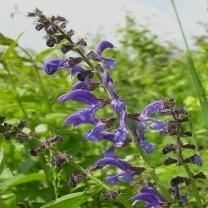
Tell us about your requirement

Price:
Quantity
Select Unit
- 50
- 100
- 200
- 250
- 500
- 1000+
Additional detail
Mobile number
Email
More Products in Nutraceuticals Raw Materials Category
Catuba Bark Extract
Price 100 INR / Kilograms
Minimum Order Quantity : 1 Kilograms
Extract Type : Solvent Extraction
Variety : Other Herbal Extract
Shelf Life : 3 Years
Purity(%) : 99%
Guggul Extracts
Price 200 INR / Kilograms
Minimum Order Quantity : 1 Kilograms
Extract Type : Solvent Extraction
Variety : Other Herbal Extract
Shelf Life : 3 Years
Purity(%) : 99%
Gymnema Sylvestre Extracts
Price 700 INR / Kilograms
Minimum Order Quantity : 1 Kilograms
Extract Type : Solvent Extraction
Variety : Other Herbal Extract
Shelf Life : 24 Months
Purity(%) : 98
Mimosa Pudica Extract
Price 1000 INR / Kilograms
Minimum Order Quantity : 1KG Kilograms
Extract Type : Solvent Extraction
Variety : Other Herbal Extract
Shelf Life : 24 Months


 Send Inquiry
Send Inquiry
